Discover exactly how to choose and use hot chili flakes for everyday cooking. This guide cuts through the confusion with practical advice you can use immediately - no food science degree required. Learn which chili flakes work best for pizza, pasta, and stir-fries, how to store them properly, and avoid the 3 most common mistakes home cooks make.
Table of Contents
- What Are Hot Chili Flakes? (Simple Explanation)
- Best Chili Flakes for Common Dishes
- How to Use Chili Flakes Properly (3 Key Mistakes to Avoid)
- Simple Storage Tips That Actually Work
- Easy Substitutions When You're Out
- 5 Quick Recipes Using Chili Flakes
- Common Chili Flake Myths Busted
- Frequently Asked Questions
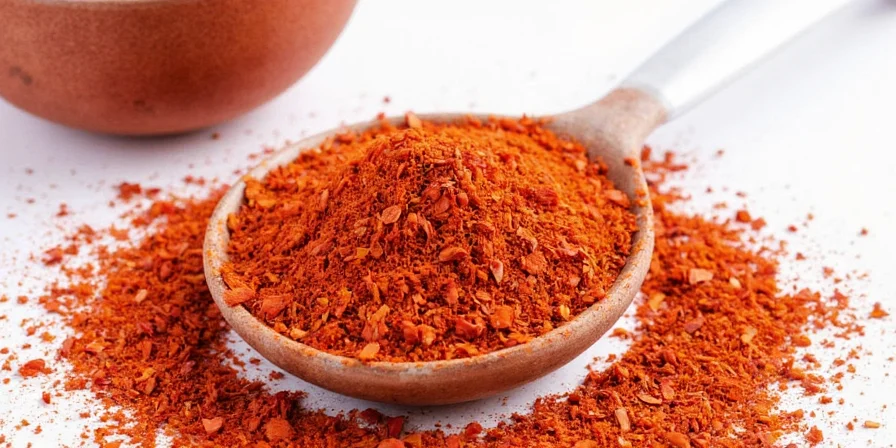
What Are Hot Chili Flakes? (Simple Explanation)
Hot chili flakes are simply dried, crushed chili peppers that add heat and flavor to dishes. Unlike chili powder (which is finer and often includes other spices), chili flakes maintain visible pieces of pepper that provide controlled heat and visual appeal.
For most home cooking, you only need to know these 3 common types:
- Crushed red pepper flakes: The standard variety found on pizza places (made from cayenne or similar peppers)
- Aleppo pepper: Milder with citrus notes, great for Mediterranean dishes
- Gochugaru: Korean flakes that are milder and slightly sweet (not as hot as you'd expect)
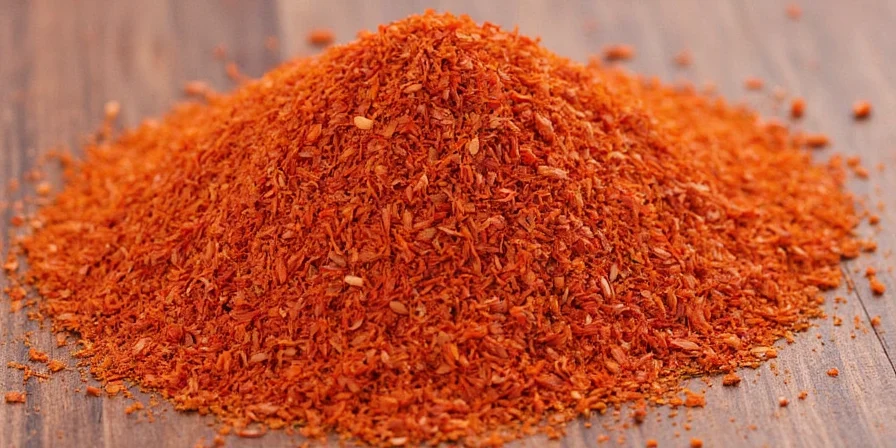
Best Chili Flakes for Common Dishes
Save yourself from accidentally making your pizza too spicy with this simple reference:
| Dish You're Making | Best Chili Flakes | How Much to Use |
|---|---|---|
| Pizza or Pasta | Crushed red pepper flakes | 1/4 tsp per serving (sprinkle after cooking) |
| Stir-fries | Bird's eye chili flakes | 1/8 tsp (add early in cooking) |
| Korean dishes | Gochugaru | 1 tsp per serving |
| Roasted vegetables | Aleppo pepper | 1/2 tsp per serving |
| Eggs or avocado toast | Hatch green chili flakes | Pinch to taste |
Never substitute gochugaru for regular red pepper flakes on pizza - Korean chili flakes are much milder and sweeter, which will completely change the flavor profile.
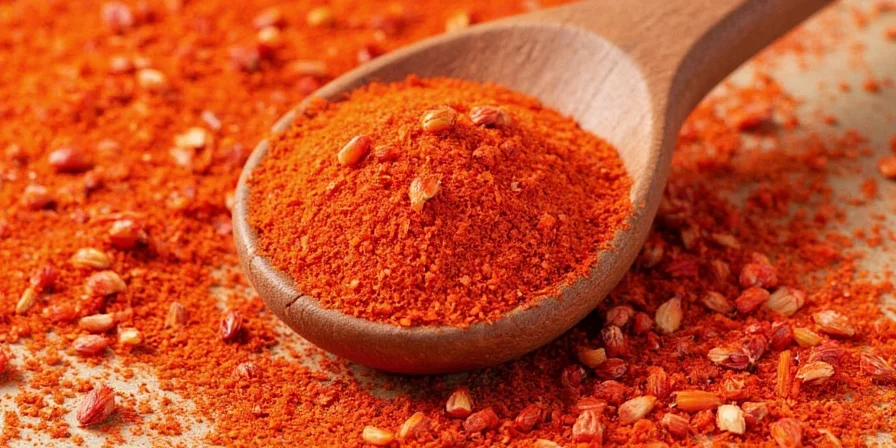
How to Use Chili Flakes Properly (3 Key Mistakes to Avoid)
Most home cooks make these errors that ruin their dishes:
- Mistake: Adding flakes at the wrong time Solution: For subtle warmth, add early in cooking. For sharp heat, sprinkle on at the end.
- Mistake: Using too much Solution: Start with half what you think you need - you can always add more but can't remove it. 1/4 tsp flakes = 1 whole fresh chili's heat.
- Mistake: Burning the flakes Solution: Never add directly to hot oil - let oil cool slightly first. Burnt chili flakes taste bitter.
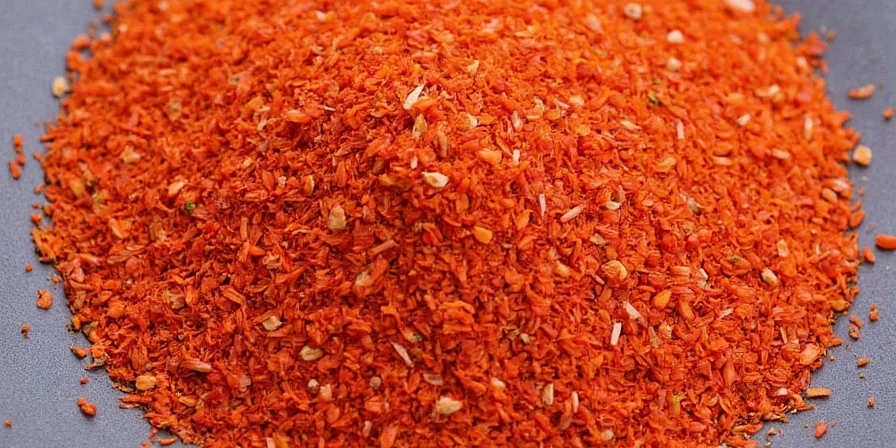
Simple Storage Tips That Actually Work
Chili flakes lose flavor quickly if stored wrong. Do this instead:
- Keep in airtight container away from light (not next to the stove!)
- Use within 6 months for best flavor (they don't spoil but lose potency)
- Don't store in the fridge - moisture ruins them faster
- Test freshness: rub between fingers - if little aroma, time for new flakes
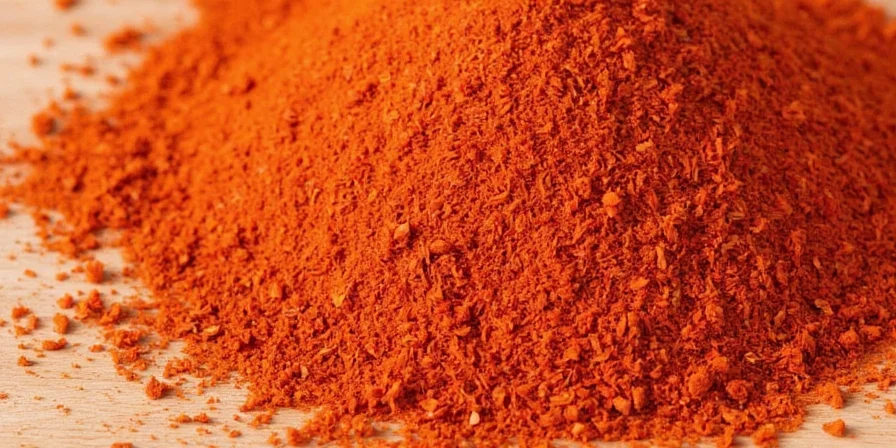
Easy Substitutions When You're Out
Don't cancel dinner! Use these swaps:
- No red pepper flakes? Use 1/2 tsp paprika + pinch cayenne
- No gochugaru? Mix 1 tsp paprika + 1/4 tsp garlic powder + tiny pinch cayenne
- Too spicy? Add honey or sugar (1/4 tsp per cup of sauce)
- Burned mouth? Drink milk or eat yogurt - water makes it worse
5 Quick Recipes Using Chili Flakes
Ready in 15 minutes or less:
- Garlic Chili Oil Pasta: Toss cooked pasta with 2 tbsp olive oil, 2 minced garlic cloves, and 1/4 tsp red pepper flakes.
- Chili Flakes Roasted Chickpeas: Toss canned chickpeas with 1 tbsp oil, 1/2 tsp flakes, salt; roast at 400°F for 20 minutes.
- Spicy Mayo: Mix 1/4 cup mayo with 1/8 tsp flakes and 1 tsp lime juice.
- Chili Flakes Avocado Toast: Mash avocado with salt, top bread, sprinkle with flakes.
- Simple Pizza Seasoning: Mix 1 tsp flakes, 1 tsp dried oregano, 1/2 tsp garlic powder.
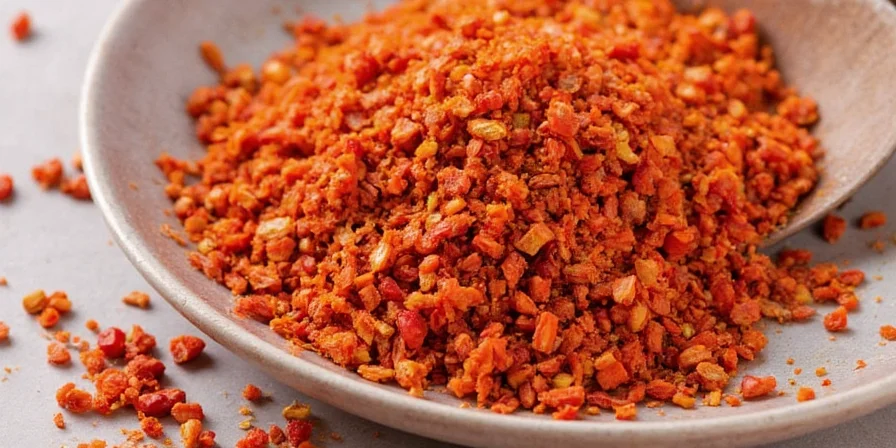
Common Chili Flake Myths Busted
Stop believing these:
- Myth: Redder flakes are hotter Truth: Color has nothing to do with heat level
- Myth: Seeds make them hot Truth: The white membrane holds most heat, not seeds
- Myth: Water stops the burn Truth: Dairy works best - milk or yogurt
- Myth: All "crushed red pepper" is the same Truth: Quality varies widely by brand
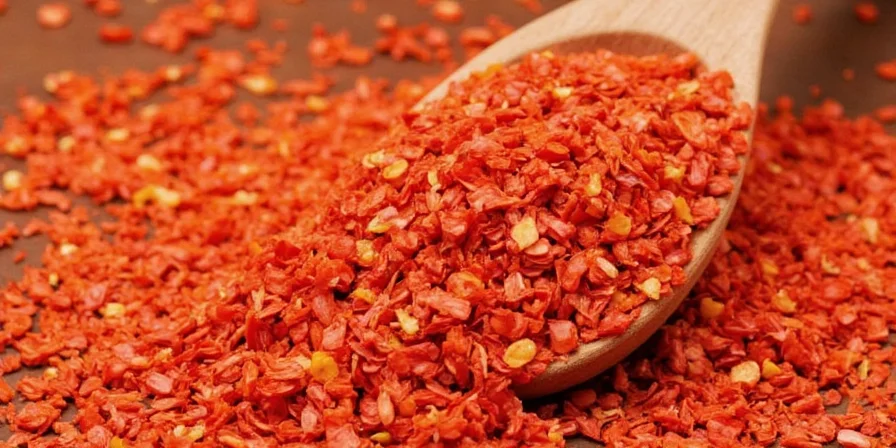
Frequently Asked Questions
How much chili flakes equals one fresh chili?
1/4 teaspoon of chili flakes provides similar heat to one medium fresh chili pepper. Start with less and add more as needed.
Can I use chili powder instead of chili flakes?
Yes, but use half as much powder since it's more concentrated. Powder works better in sauces, while flakes provide texture in finished dishes.
Why do my chili flakes taste bitter?
Bitterness happens when you burn the flakes. Always add them to warm (not smoking hot) oil. If oil is smoking, it's too hot - let it cool for 30 seconds before adding flakes.
How long do chili flakes last?
Chili flakes stay flavorful for 6 months in a cool, dark place. After 1 year, they're still safe but lose most flavor. Test by rubbing between fingers - if little aroma, replace them.

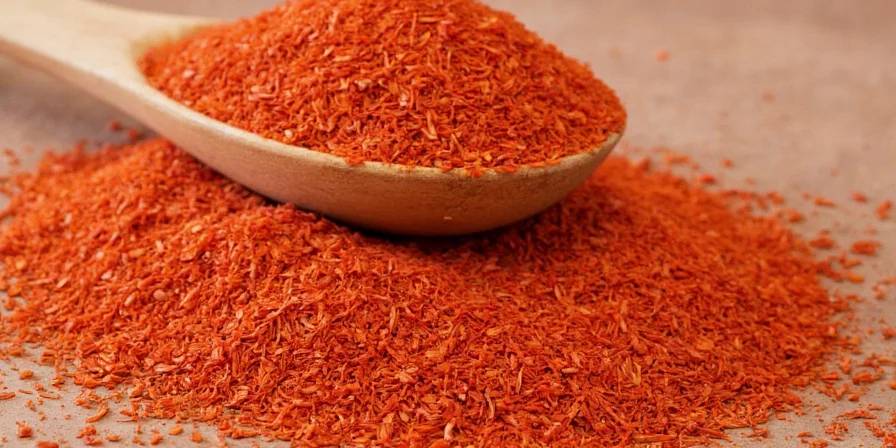









 浙公网安备
33010002000092号
浙公网安备
33010002000092号 浙B2-20120091-4
浙B2-20120091-4